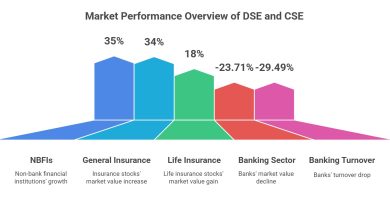The government is set to overhaul the Bank Company Act, removing the controversial provision for identifying “willful defaulters” while introducing broader governance reforms across the banking sector.
Under the 2023 law, banks were required to maintain a list of willful defaulters and submit it to Bangladesh Bank, with a detailed process of hearings and appeals before final declaration. However, officials say the procedure was so complex and time-consuming that it was practically impossible to finalize any name, rendering the clause ineffective. The new amendment proposes scrapping this provision altogether.
Defaulters’ restrictions remain intact
Officials clarified that removing the willful defaulter label does not absolve defaulters of existing penalties. Restrictions on taking new loans, travel abroad, or serving as bank directors will remain in force.
Key governance changes
The amendment also tightens regulations on group companies and bank boards:
- Group loans: Previously, non-defaulter companies within a group could borrow if another group company defaulted, subject to Bangladesh Bank approval. This flexibility will be removed.
- Board structure: The maximum number of directors on a bank board will be reduced from 20 to 15, with at least eight independent directors. Chairpersons must be selected from the independent directors. Director tenure will be shortened from 12 to six years. Family representation will be limited to two members, down from three, with family definition expanded to include in-laws and siblings’ spouses.
Experts say these changes align with International Monetary Fund (IMF) recommendations to enhance transparency and curb undue family influence in bank management, a concern that surfaced repeatedly in past reforms. The IMF had highlighted board reform as a condition in Bangladesh’s 2022 loan program.
Diverging views
Some analysts warn that removing the willful defaulter designation could weaken legal recourse against planned loan defaults. “Without clear legal clarity, those who deliberately avoid repayment could increase in number,” said economist M Helal Ahmed Jony.
Others argue that simplifying procedures and focusing on practical, economic controls is more effective than cumbersome legal designations. Government sources said the amendments aim to improve long-term efficiency and transparency in the banking sector, ultimately benefiting the country’s economy.
Bangladesh Bank’s board has reportedly approved the draft amendments, and the ordinance could be issued as early as next month.






